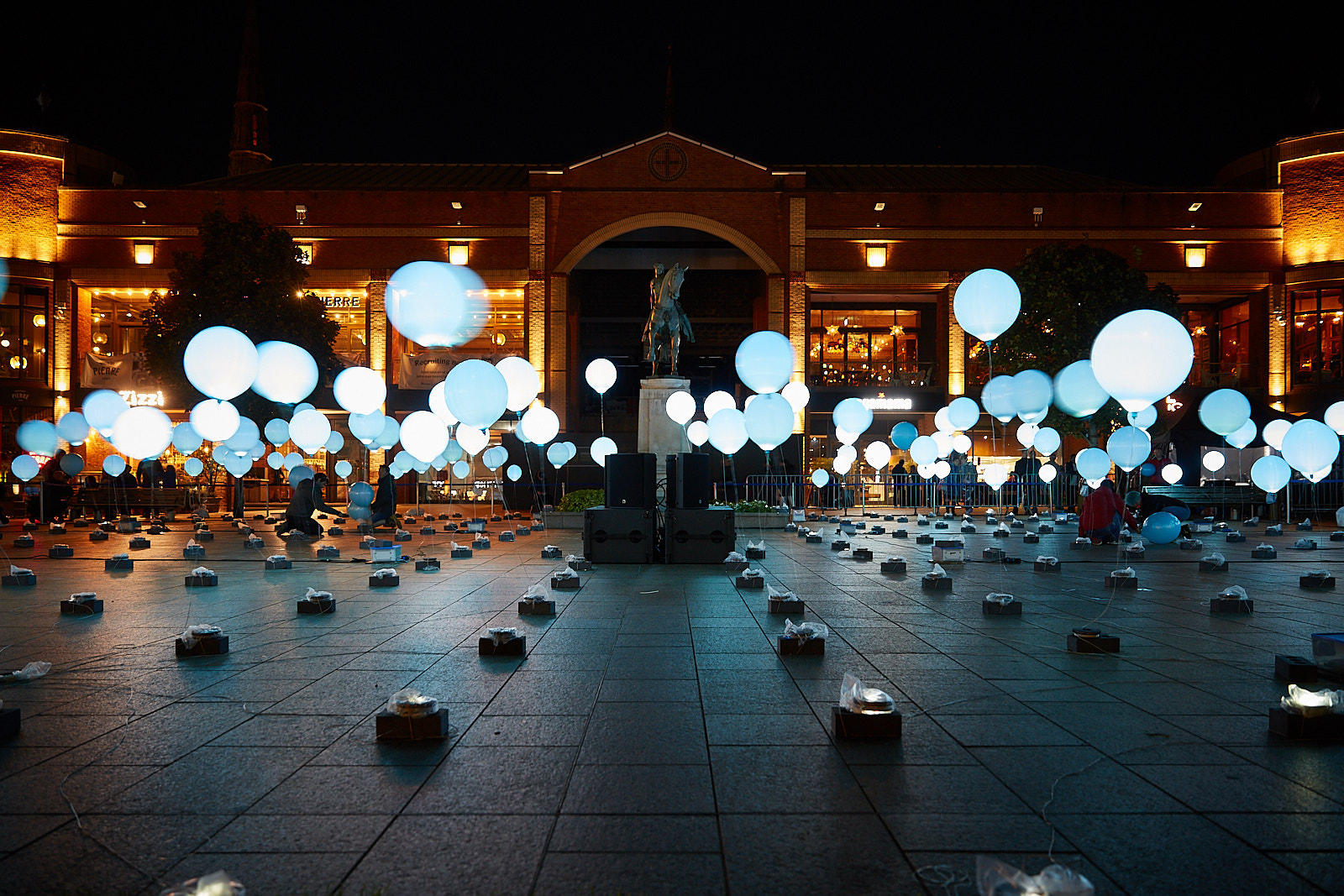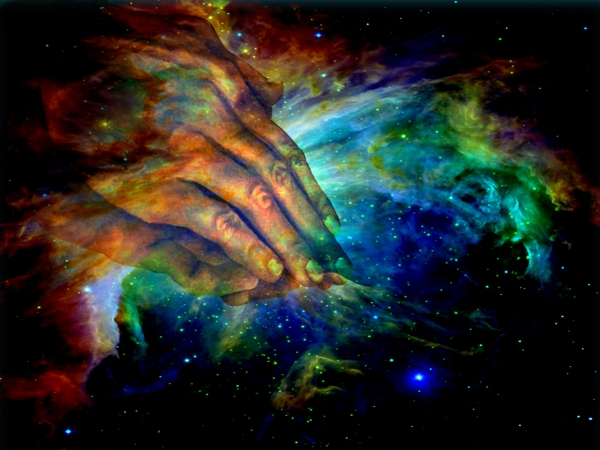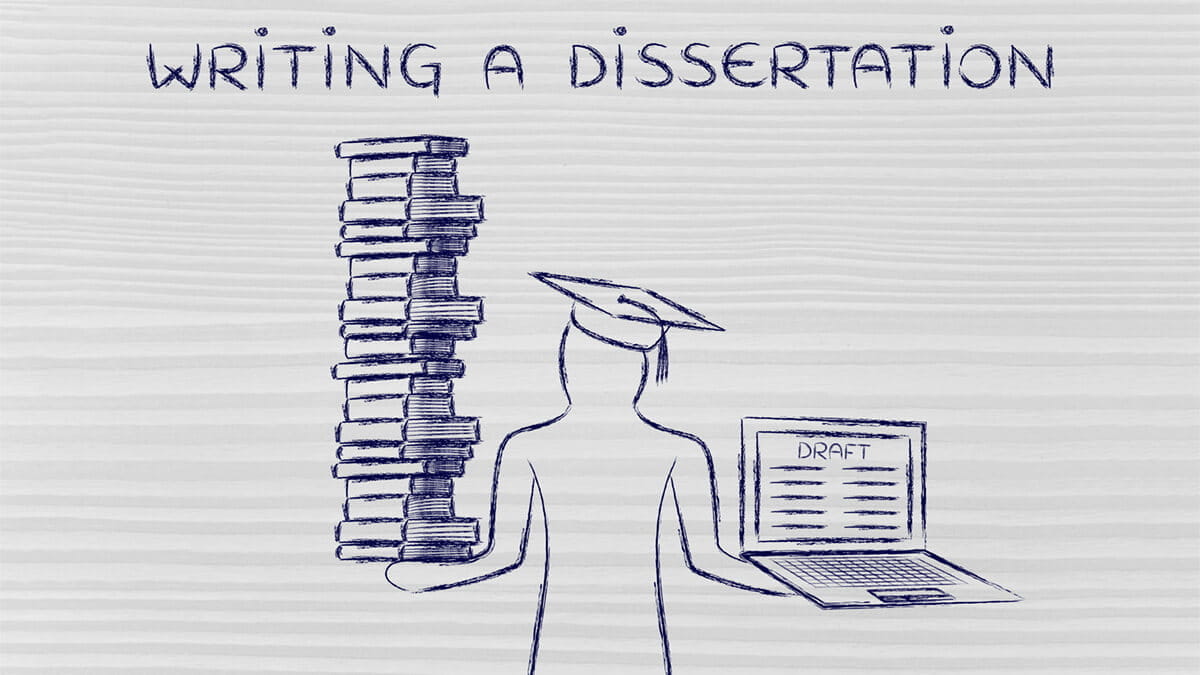Find attached the consultancy report curated as part of my Masters degree.
City of Culture 2021
UK City of Culture is a designation given to a UK city for the period of one calendar year, during which the successful bidder hosts cultural festivities through culture-led regeneration for the year.
Adding to my university experience, Coventry was nominated as the UK City of Culture 2021, which provided me with the opportunity to work on new upcoming artistic projects. I was fortunate enough to work as a Trainee Production Assistant for Strictly Arts Theatre Company and The Belgrade Theatre on the set of a upcoming TV series, ‘Seaview’.
The internship involved me with the duties of a production assistant, providing administrative and organisational support to senior production staff. My role responsibilities included clearing copyrights, booking studios, equipment, staff time, liaising with wider teams, preparing and distributing briefing notes, arranging and booking travel, organising schedules and budgeting.
Other smaller jobs included get-ins and get-outs with set preparation and working closely with the production staff and crew to ensure the smooth running of the daily set schedule.
It was an interesting experience and opened my eyes to the different aspects of working on a set. One of the main challenges was ensuring all our different set locations were ready for shooting days and that we remained on schedule. I enjoyed learning about how a set works, meeting some incredible people in the entertainment industry and being able to contribute to the City of Culture 2021.
This was overall an eye-opening experience and opened the door to new opportunities in the entertainment and hospitality industry.
Keep an eye out on social media for information about the ‘Seaview’ release date. You can follow the link below to find out about any events or festivities happening in Coventry for the City of Culture.
Private Tutor
When I first joined university, I thought people has glamorised it to such an extent that I was almost beginning to regret my decision for joining. Moving away from home is a big deal and most first year students find the contact time reduction from A-levels to university to be a big adjustment. One way I curbed this sudden change was by signing up onto an online website as a private tutor!
Throughout my university career, I have been advertised as a Private English Tutor, specialising in both literature and language for pre-GCSE, GCSE, A-levels and first year university students. As a self-employed tutor I have been able to control the hours I work and adjust them according to my university schedule. Working with a range of students has helped improve my interpersonal skills and overall time management.
As a tutor I adapt my lessons according to the individual student’s strengths and weaknesses as well as the content they’re studying or need more support with. Along with content, every student has a different teaching style they respond best to, so, I work to change my teaching styles to make the student feel more comfortable and help them understand the work.
Being a tutor has been a rewarding and interesting experience and I will definitely be continuing to tutor post-undergraduate studies. If you’re considering becoming a tutor or require a tutor for yourself or someone else, there are a range of websites where you can find affordable and qualified tutors for almost any subject. Please use the links below to explore this industry more:-
Diya Chopra | Private English Tutor | SuperProf:
https://www.superprof.co.uk/english-student-offering-english-literature-language-lessons-for-level-and-gcse-london.html
Tutor Ocean:
https://www.tutorocean.com/
Creative Project -Commentary
‘Utopia’, coined by Sir Thomas More (1516) is the terminology used to describe the belief or interest in the design of a “perfect imaginary world” (The British Library 2021). By writing three individual diary entries, this creative project encompasses economical harmony, ecological balance and the evolution of a flawless human race, the core features of a utopian society. Using chief influences from Yevgeny Zamyatin’s We (1921) and William Morris’ News from Nowhere (1890), these dairy entries aim to explore the relationship between humanity and nature, the theme of morality and the idea of the individual.
The relationship between humanity and nature is established in the first diary entry with the speaker describing humanity’s adaption and conformity to nature and its existence based on the seasons. Morris’ News from Nowhere (1890) depicts a socialist utopian world where machinery and industrialisation no longer exist and society’s embracement of nature will improve their way of living and attitude to life. The utopia’s depiction of humanity’s coexistence with nature is heavily influenced from Morris’ own fascination and appreciation for nature, particularly reflected through the Kelmscott Press Edition of the novel, featuring decorative illustrations of flowers around the boarders of the page. Morris’ own publication company intentionally illustrate the boarders to emphasise the literature’s exploration of beauty and nature as critical elements of a utopian society. Similarly, the diary entries explore the embracement of nature by using it as a model to schedule and control how society operates with human and animal mating seasons aligning and hibernation being undergone by humans as well.
Alongside the embracement of nature, Morris’ novel rejects technology and industrialisation and glorifies the celebration of people’s craftsmanship. In News from Nowhere, people worked for a sense of pleasure and individual satisfaction whilst in the diary entries, working provides people with a sense of purpose and enables them to be a pragmatic cog in the cycle of society. Since there is no monetary value assigned to each profession, society work to ensure the successful social coexistence and functioning of society, mirroring the way of the ecosystem. The diary entries highlights humanity’s past obsession with industrial advancement as catalysing its downfall and preventing the peaceful coexistence between humanity and nature. The absence of the capitalist value of financial domination eradicates the concept of corruption enables society to practice a “comfortable, materialistic, moralistic” lifestyle that can encompass all members of society instead of a selective few (Kumar 1993:138). By rejecting industrialisation for the embracement of nature, the utopia depicted in the diary entries mirrors Morris’ socialistic pro-nature News from Nowhere whilst presenting society as self-destructive unless willing to embrace the saviour that is nature and the functioning of the ecosystem.
The theme of morality is prominent in the second diary entry with the speaker debating whether the concept of morality is understood throughout the ecosystem. In Plato’s Republic (c. 375BCE) to achieve an absolute state of justice, morality and the creation of an ideal state are intertwined allowing morality and ethics to be a primary concern of a utopian society. However, in Zamyatin’s We (1921)all aspects of society are determined by numerical calculations therefore the society’s judicial system is based upon the “unalterable and everlasting … four rules of arithmetic” and D-503 believes that a “moral system built on the four rules will prevail as great” (Zamyatin 1921:100). Both D-503’s initial beliefs about the moral system and the first dairy entry suggest that even though morality is not centralised, society can still function efficiently as society’s focus is on functional pragmatics rather than emotional intentions, ultimately still being a utopic society. As the diary entries progress the speaker begins to realise that although society benefits from its submission to the ways of nature, the absence of an authoritative and dependable justice system will result in society’s inevitable decline. Similar to Plato’s Republic, morality is centralised and the speaker realises that without the concept of morality, society’s selfish desires and actions will go unpunished resulting in an unjust and dystopic lifestyle. In Zamyatin’s We, the concept of morality is centralised as D-503 begins to realise that the “justification of a government reducing individuals to a number implies moral error” (Dennis and McGiveron 2000).
The theme of morality closely intertwines with the idea of the individual as D-503 realises the immorality of reducing individuals to a numerical identity. Contrastingly in the third diary entry the speaker realises that without a moral compass the conformity to nature is futile and that being bound to the cycle of nature is an oppressive take on society, stripping it of freedom and individualism. In We, D-503’s internal struggle between his ‘old-self’ of machine-like logic and his ‘new-self’ of primitive passion and human emotion (Dennis and McGiveron 2000) is mirrored in the diary entries. As the entries progress, the speaker becomes more uncertain whether the conformity to nature is the most beneficial way for society to progress and she suffers her own internal conflict after realising the importance of morality in society and the absence of it in nature. The exploration of the idea of the individual is crucial to a utopic society as it provides readers with an intricate understanding of the psychological understanding of the utopia’s human race.
Finally, the entries reflect a similar sectioned structure to Morris’ News from Nowhere with the first section outlining the different functioning aspects of society whilst the second and third section discuss the effect of the clockwork upon society. The entries also encompass a formalised tone which depletes into a despairing and overly confused one as the entries progress which is similar to the writing tone and character construction Zamyatin uses in We.
In conclusion, although the entries predominantly reflect a utopic society like Morris’, they highlight the individual’s psychological decline and epiphanic realisation that regardless the intention of the restriction, any degree of restriction is synonymic to a dystopic society. In my opinion, any form of restriction upon society can result in the society to be perceived as dystopic rather than utopic as it prevents individuals from having complete and unhindered freedom of choice and morality.
List of References:
Dennis, B.J. and McGiveron, R.O. (2000) ‘Zamyatin’s We’ The Explicator [online] 58 (4), 211-213. available from < file:///C:/Users/Diya%20Chopra/Downloads/Zamyatin’s_We%20Explicator%20(1).pdf> [3 July 2021]
Kumar, K. (1993) ‘News From Nowhere: the Renewal of Utopia’. History of Political Thought [online] 14 (1), 133-143. Available from <https://www.jstor.org/stable/26214424> [4 July 2021]
The British Library (2021) Thomas More’s Utopia [online] available from <https://www.bl.uk/learning/timeline/item126618.html> [2 July 2021]
Zamyatin, Y. (1921) We. [online] trans. Clarence Brown. London: Penguin Books Ltd. available from <https://bibliu.com/app/?query=zamyatin%27s%20we#/view/books/9780241458761/epub/EPUB/xhtml/chapter020.html#page_100> [4 July 2021]
Creative Project -Diary Entries
17.05.4023
Dear Diary,
Everything is just as it should be.
There is nothing out of place, not in any capacity. From the melody of the birds’ morning song to the way the sunlight streams through the windows, there is nothing out of place. It makes sense, to synchronise our lives to the flow of the planet we spin on. It would be nonsensical to just let ourselves run around without any sort of structured routine, it would be like ignoring an instruction manual and then openly wondering why everything is a struggle. The clockwork movement of nature is such an organic way of living, anything that resembles a remote deviation would be the greatest act of foolishness since the near extinction of mankind in 3345.
Before the near extinct of mankind in 3345, the leaders of the world had this unwavering obsession that progression was synonymous with destruction. In order for mankind to develop into masters of ‘advanced living’, we thought destroying the foundations of our planet and sacrificing nature would lead us to be triumphant as the superior race. The history books will tell you, the mass destruction of endless wildlife, poaching for medicine and furniture and the pawning of nature reserves for temporary wealth paved the way for sky-high buildings and poisonous gas pumping factories. Our fearless and visionary leaders believed so strongly in the power of mankind that it blinded itself in a cloud of egotistical desire for more.
More money, more buildings, more technology to induce a comfortable lifestyle at the expense of the indigenous bearings of Mother Nature. In the end, the barely surviving ecosystem couldn’t handle the intensity of this ‘advanced living’. The air stopped recycling out the waste and toxins, in an attempt to survive, everything began to collapse in on itself with a chain reaction ending in the mankind’s ruin.
Thank god for the Clockwork.
The Clockwork is new a found way of life, based solely on nature it conforms wholly to the planet and its cycle without any disruption or disturbance from humans. Quite simply put, rather than humans demanding and dictating the speed of growth, humans kneel before the whims of nature and live their life accordingly. We synchronise our internal body clock to the clock of nature with the natural order of each of the four seasons dictating our own way of living. Each season’s natural order directly reflects our choices and behaviour so that we consistently harmonise with the ecosystem.
Society’s blatant disregard for the clock of nature is what drove humankind to the brink of extinction in the first place but the preservation of nature will create a harmonious balance.
When I think about humanity before the submission to the Clockwork of nature, I am always in wonder at how they ever functioned. Without a peaceful coexistence of humanity and nature, they would remain the largest threat to our environment and subsequently, the largest threat to themselves. Katie understands it less. She fails to see how vital our submission to nature is.
She always asks me the same question, rephrased as to sound as though she had been pondering hard since the last answer I gave her, “How can you be sure we’re so perfect now that we don’t live for ourselves?”
I always answer with a reworded version of the following; “why do you assume that everything nature provides for us, the Clockwork lifestyle we adhere to, isn’t living for ourselves? Every cog of our society, runs just as it should. No element goes too fast or goes too slow, nor does it run for too long or for not enough time, we get to relive in a perfect moment.”
Katie complains about our purpose a lot, she idolises the way we used to assign a monetary value to our lives, exchanging money for our services. “We used to work for money, we had purpose and now we have only the feeling of conformity as comfort”, she’s convinced that the materialistic pat-on-the-back that is money, is an obvious nudge that she’s doing well, that there is purpose to her goals and work.
“But that isn’t the case. The feeling of being part of the cycle of nature is more rewarding than any financial token could have been. You forget it was humanity’s mass greed for these tokens that fuelled their desire for more, the more that almost ended everything. Money is not a purpose. Now, we work on the basis of trade. Without any set currencies, our people are taught that all careers have an equal contribution to the successful survival of society, doctors are the same as market stall workers and that is because they both provide a service. They don’t work for a pay-check, instead they work to feel as though they’re making a difference. Afterall, that is why the beings of nature work, to contribute to an ecosystem.”
I think once Katie understood the analogy of our society with the ecosystem, she began to understand why I was so proud of our revolutionary development from life pre-3345. Naturally, she still had questions and fingers to point. I remember, she came home one day and said that she was confused as to why Friday schooling was compulsory for her and not our neighbour, a stout little boy who was the same age as Katie. “It’s because he learnt quicker” I explained, “mandatory education has no lasting effect on individuals unless their education is tailored specifically for them and their capabilities. He learnt algebra at a much quicker pace and therefore he doesn’t need five days of schooling, instead he only needed four.” It’s the same with nature, insects and animals progress into skills faster than their associates and therefore one bee might be pollenating years before its twin brother, adapting to your environment should be recognised and schooling should be tailored.
She asks other questions too, she likes to be difficult, to question a perfectly balanced way of living and whenever she questions it, I tell her that there is no need to, why should she worry in harmonised world, led by the greatest leader known to mankind, nature.
Margot
______________________________________________________________________________________________________________
18.04.4026
Dear Diary,
Almost everything is not as it should be.
I feel more like Katie than Margot today. Margot has more faith in the Clockwork’s power and the importance it holds in ensuring humanity’s survival and nature’s preservation. Yet, today I find myself questioning the Clockwork and its precision but unlike when Katie questions the Clockwork, there was no one to dull my curiosity or flatten my suspicions.
The Clockwork is the best way to live.
Unquestionably. Unequivocally.
Yet, I feel more like Katie than Margot today.
It was an average day for the world in the Season of Renewal. Everyone is obliged to spend the seasoning cleaning and organising physically, materialistically and mentally. People must take one walk per day through the Fields of Spring and take it upon themselves to be academically open either by reading or learning a new skill or language. I take my walks during the day-time, with people at their respective places of purpose, the fields are less crowded and better for thinking.
I took the same route following the outskirts of the Main Square and detoured for a shortcut around the eldest Oak Tree, the longest-standing piece of nature from era of pre-3345. I travelled on the same route and at the same pace as I always do, the route carved out by nature and at an undisruptive pace. The fields are supposed to be littered with blooming buds, growing at the pace nature intended, some faster than others but all in due time. Afterall, the Season of Renewal meant everything should have been aligned perfectly. Yet, as I walked through the Fields of Spring, my entire focus was shifted and I was alerted to gaze upon a particular ordeal, its surroundings blurred leaving me blinded to it.
I saw nature. Two insects. Bugs. Creatures.
A microcosmic representation of our own human race. Miniscule exemplary models of how even at our weakest, we can live harmoniously if we follow the ways of the Clockwork.
Or so I thought.
It was strange, quite difficult to put into words. With my focus being shifted to the interaction between the two bugs, I became acutely aware of them and their existence, their stance, their movements, their entire being had an intense power that in that moment, made me certain that our conformity to nature was the finest alignment of human history. Not wanting to disturb them, I slowly shifted my walk at a safe distance, yet I was so enchanted by their placement in our universe’s existence that I couldn’t tear my eyes away from their interaction.
Part of me wishes I looked away and just ignored them because missing their interaction would have been worth more than being plagued with these relentless doubts.
They fought.
Both bees were from the same hive, they had to be there is only one bee hive in the local perimeter that would result in bees pollenating in the Fields of Spring. But they fought. I don’t understand how they could or why they would? The first one was slightly smaller, it seemed as though it has just been allowed to go out and pollenate unassisted. Whilst it was trying to get itself in the optimum position, it was suddenly ambushed by a significantly larger bee who spotted the struggling rookie and decided to push and reclaim.
I was so mesmerised that I didn’t notice the larger bee approach the crimson red flower. It was then that the dispute happened. It all went by so quickly, the larger bee pushed first and by all its might the smaller one clung onto the red flower, begging for a chance. Failing to remain stuck to the flower, after several pushes the larger bee flew backwards, lulling the smaller one into a false pretence of safety, it suddenly flew forward charging mightily and pushing it off balance, ripping it from the flower. It was thrown off. Ripped from the flower. Forcibly surrendered from its chance to pollenate and left victim to the power of the larger bee.
But it wasn’t over. Somehow the smaller bee found some untapped courage and mimicked the larger bee’s fly-up and charged at the larger bee but that only made it worse. Rather than a victorious reclaimant of the flower, it had vexed the larger bee enough which had now rounded on the smaller one and viciously bit it. I watched it struggle to stay upright, tormented by the bite it continued to struggle until its energy depleted so severely that it collapsed in on itself, missed the flower as a landing pad and fell lifelessly into the blades of grass below.
It was dead. Killed by its own kind. It was murdered in a fight for dominance.
This is not how nature should be. The Clockwork is based on nature’s harmonious co-existence, the way nature has a set way of living by the seasons and by its capabilities is what inspired humanity to follow in its footsteps. Why would it kill the smaller bee? Why didn’t the larger one guide it, teach it how to pollenate, be patient and supportive? Why did it act so unfairly? Perhaps we behave unfairly, we mandate education based on capabilities but is that not to ensure everyone receives the most out of it? We work on the basis of trade as to prevent monetary discrimination, not to devalue the work of our people?
The larger bee, it behaved in such an unjust manner it was though it saw no alliance with the smaller bee, as though it was from another hive or another species all together. It was blinded to any resemblances and instead was fuelled by the uncertainty of their differences.
The larger bee was more experienced, more dominant and more powerful. The smaller bee was less experienced, weaker and subsequently disadvantaged.
But the larger bee didn’t care, it only wanted to sustain itself even at the cost of the other’s life. The complete disregard and lack of a harmonious co-existence has left me hollow, questioning the very foundations of nature and the Clockwork. Why are we following an order that is flawed? That exhibits resentment and discrimination?
Margot
______________________________________________________________________________________________________________
20.02.4027
Dear Diary,
Nothing is as it should be.
The Clockwork is flawed. There is no doubt in my mind that the Clockwork is a restrictive and oppressive cycle. It claims to protect both nature and humanity, mixing them into a harmonised co-existence. The Clockwork was supposed to protect nature and support humanity into an evolution, but how can we evolve if nature is holding us back?
The Clockwork was supposed to be a foundation for our own way of life, just like nature we mandated our children’s education system on the basis of their capabilities, advancing those more capable at a faster rate rather than restricting them to a deadline of progression. The way nature evolved within the seasons, is the way we were supposed to live, Spring would be the time for renewals, moving house and beginning new endeavours. Summer was the time for enjoyment, people would socialise and choose particular leisure activities to pursue. Autumn was the season of preparation, we would work within our careers during this time, buy food and store it, get our homes ready for Winter. Winter. The time for sleep and rest, no work or strain just recovery from the previous seasons.
Everything was divided in such a way where humanity allotted equal times for each aspect of their way of living that there was no way to ignite war or conflict. Prejudice and discrimination were unheard of because everyone followed the Clockwork and were bound to its foundations. Society was so certain of the way of the Clockwork that there was no need to focus on the differences between people because our purposes and our beliefs were all the same that the Clockwork held us together.
I’m not sure that’s still true.
After the incident in the Fields of Spring three years ago, I began to question nature’s sense of morality. It seemed that we never needed this compass of good and bad because everyone lived such rigid and conforming lives that no one ever discriminated or acted out against each other. People were free to practice any chosen career and the basis of trade was a flawless monetary replacement. It eradicated plagues of classism and poverty, the Clockwork is an equaliser and keeps people grounded and united. Nature promotes the concept of our desires as being instinctive and that by synchronising our own cycle to nature’s clockwork we can control when these instinctive urges occur and act upon them accordingly. Years of synchronisation means children are born in the season of Spring and humans crave longer periods of sleep during the winter months. The synchronisation means humanity follows the most efficient way of living.
After going almost my entire life being completely convinced that the Clockwork produces the most successful way of living, I now find myself torn within a moral questioning whether this rigid structured way of life is in fact a form of oppression rather than liberation.
Organised liberation is still a form of oppression. The incident with the two bees in the field made me realise that morality has no bearing on nature. There is no co-existence within nature and that the battle for supremacy is prominent within the same hive as it is among the humans pre-3345. There is no sense of freedom or justice otherwise the smaller bee would have been able to pollenate uninterrupted and the larger bee would have been punished for killing the smaller one. Our dependency on nature as the most faultless way of living is the sole reason we struggle to accomplish the goals of human kind, the reason we haven’t developed but instead opted for stagnated survival. Without a dependable governing body the absence of a enforced judicial system leaves our society exposed to potential moral corruption, without an enforcer there is no certainty that justice exists.
Pre-3345 saw human-to-human oppression. Discrimination based on race, gender and class. These problems were no longer prominent when society conformed to the clockwork, but discrimination still exists, perhaps not so prominently within humans but my witnessing of the bee incident has proved that in a few years, society will revert back to their ways of differentiating. They’ll differentiate between those who progress based on their faster developing capabilities or those who choose to wait several years post-optimal mating and birthing seasons. They’ll blame them, accuse them of risking the probability of higher chances of reproductive success and sabotaging the society and mankind’s progression. They’ll begin to demand more and find excuses to build up their empire of technology through the destruction of nature because of the repressive lifestyle they are forced into.
If there was no unjust action within the ecosystem then surely the Clockwork would have been fine, a plausible way of living. Instead, humanity’s submission to the clockwork of nature is within itself a restrictive and oppressive lifestyle. The way we force ourselves to adapt our lifestyle to the way nature does, the way we trick our instinctive desires to erupt at seasonally appropriate times. We’ve convinced our body clock to mate intime for the birthing season of Spring, to be most relaxed in Summer and the most active in Autumn and in complete emotional, physical and mental hibernation during the Winter.
The Clockwork is flawed. It has to be. We’ve surrendered our personal desires and freedom to feel and act whenever we wanted to conform to nature. We were so sure that nature was the best cycle to follow that we failed to notice that it held no moral compass, that it was slowly handcuffing us into an endless mundane cycle.
Would you rather live being oppressed by your own kind? Or would you rather be oppressed by the kind that you disassembled your entire society to conform to?
The Clockwork is a failure. A restrictive, oppressive and consuming failure.
Margot
Undergraduate Degree Show -LIVE
As the academic draws to an end, the Coventry University Undergraduate Degree Show is finally LIVE and you can now view all the incredible final pieces of creative work students from across the school have been working on.
A big congratulations to everyone involved, it has been quite an experience and we hope you enjoy it. Please use the link below to head over to the site where you can view student’s work, watch industry professionals give advice & top tips to our undergads and get in contact with students about their work or their future professional endeavours.
https://covdegreeshow.coventry.ac.uk/undergrad/
https://covdegreeshow.coventry.ac.uk/undergrad/courses/story/english/diya-chopra/
FAH Online Degree Show 2021
Coventry University’s Faculty of Arts & Humanities produces a 3-day live degree show, showcasing each student’s creative work or final projects. The show typically generates interest from family and friends, the general public and significant industry professionals who are invited to view the range of projects produced.
Unfortunately, due to the restrictions of the global pandemic, the in-person show has been moved online for the second year running. However, whilst the show is traditionally created to showcase creative arts degree work, this year, the university and designers at Peter&Paul have opened up the website to all degree types across the faculty.
As a student on the BA English Degree, I will be featured as part of the School of Humanities and cannot wait for my final project to be publicly showcased. The website is expected to go live in June 2021 and you will be able to access it right here.
Keep and eye out for any advertisement of the website and for the link which I’ll attach here to view the site. It’ll be an incredible opportunity to collectively showcase all the wonderful work that has been produced this year and hopefully it will drum up some interest among art lovers and industry professionals.
T.S. Eliot’s ‘The Waste Land’: Bildungsroman and the European Mind
Literature, if written well, has an intense power over the reader forcing them to question their own ideals as well as the ideals of the society they live in. Literature has the ability to make a reader transform and redefine what’s important whilst touching the reader’s soul, giving them a glimpse into a part of themselves they never knew existed.
I have chosen to base my dissertation on the genre of bildungsroman, a Germanic originated genre that encompasses coming-of-age literature. This literature follows the individual’s life from their formative years, through adolescence and into their adulthood. I have taken T.S. Eliot’s famous 1922 modernist poem, The Waste Land and have read it as a bildungsroman homing in on the three key stages of the culture (birth, maturity and decay) of the European mind and the collective minds of Europe.
This dissertation resonates with me on a personal level as I have a deep interest in coming-of-age literature and have used a modernist masterpiece to provide a new perspective into the literary commentary of the European culture. I was fortunate enough to receive a 1:1 for this project and I have enjoyed working on this piece this last semester.
Please find a copy of my dissertation and I hope you enjoy reading this piece as much as I enjoyed writing it.
Dissertation Presentation
Research builds the foundation of a good dissertation and with an English one, you can never have too much information. My dissertation consisted of research from journal articles, plays and poems, critical essays and writing which helped shape my topic and what I wanted to write about.
By creating a digital presentation, I was able to collate all the relevant information and research into a clear and easy to understand format which later helped made the planning and writing stages of my dissertation, much easier.
Here you can find and download a copy of my dissertation presentation which highlights the key information from my research which I later discuss in my dissertation.
Leadership Award 2021
Societies and Sports Clubs at university run no less than a small business or company, they require time, dedication and genuine passion to see their successful running.
Although I worked as President of CUSU MTS during a global pandemic, I have still been able to develop skills and implement new strategies and standardised practices that will help the society (particularly the administrative side) function efficiently.
In January 2021, I was lucky enough to receive a ‘This is CUSU’ Gold Leadership Award. Tiered into 3 stages, depending on the level of engagement and activity, students who are involved with the university’s students’ union, are eligible to nominate and receive a Leadership Award.
For supervising and leading a committee to ensure the smooth running of the Society’s Workshops, Online Showcase and Socials. Supporting the society in various areas including admin, creative and pastoral sides.
Verified Skills:
Communication: Empathetic
Change Management
Personal Skills: Professionalism
Organisational Skills
Commercial Marketing
Thrilled for the recognition and I cannot wait to see what more we can get up to this year and in the future.
https://www.linkedin.com/posts/activity-6762751400125493248-TtKz








